MercoPress. South Atlantic News Agency
Tag: Brexit
-
Thursday, February 2nd 2017 - 11:44 UTC
Parliament backs by clear majority Brexit negotiations
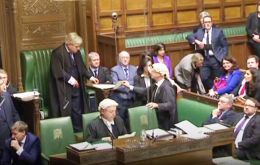
MPs have voted by a majority of 384 to allow Prime Minister Theresa May to get Brexit negotiations under way. They backed the government's European Union Bill, supported by the Labour leadership, by 498 votes to 114. However the SNP, Plaid Cymru and the Liberal Democrats opposed the bill, while 47 Labour MPs and Tory ex-chancellor Ken Clarke rebelled
-
Thursday, February 2nd 2017 - 10:32 UTC
White Paper on Brexit planning to be released on Thursday, announces PM May
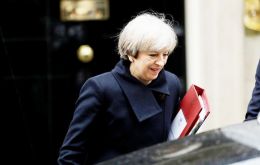
Prime Minister Theresa May has confirmed that Downing Street will publish a white paper on Brexit planning on Thursday. Speaking from the dispatch box at Prime Minister's Questions, May confirmed the arrival of the paper in response to a question from Tory backbencher Maria Miller.
-
Wednesday, February 1st 2017 - 08:47 UTC
Parliament expected to support bill to open way for Brexit negotiations
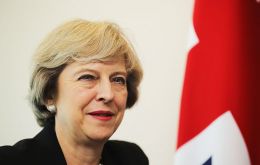
British Members of Parliament are to vote later whether to give Theresa May the power to get Brexit negotiations under way. The government is expected to win, with most Conservative and Labour MPs set to back its European Union Bill.
-
Tuesday, January 31st 2017 - 21:14 UTC
House of Commons begins two-day debate on Brexit formal process

British MPs are to begin on Tuesday two days of debate over the government's parliamentary bill to get the formal process of Brexit under way. Discussions on the European Union Bill have been extended to midnight on Tuesday to accommodate more speakers, with a vote to take place on Wednesday.
-
Friday, January 27th 2017 - 10:59 UTC
Spain will not put Gibraltar at the centre of Brexit negotiations
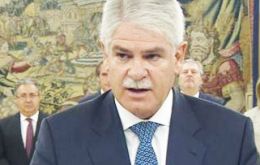
Spain will not put Gibraltar at the centre of Brexit negotiations, the country’s Foreign Minister, Alfonso Dastis Quecedo, said in an interview with the Financial Times. Dastis Quecedo told the newspaper that the EU should start trade talks with Britain relatively soon and had no plan to impose a “punitive” Brexit deal that would weaken London as a financial centre.
-
Wednesday, January 25th 2017 - 08:09 UTC
Government cannot trigger Article 50 without an act of Parliament, rules the Supreme Court
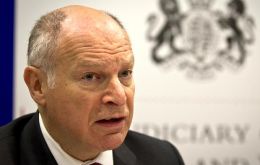
The UK Parliament must vote on whether the government can start the Brexit process, the Supreme Court has ruled. The judgment means Prime Minister Theresa May cannot begin talks with the EU until MPs and peers give their backing - although this is expected to happen in time for the government's 31 March deadline.
-
Wednesday, January 25th 2017 - 07:57 UTC
MPs demand PM May government to publish the Brexit plan as formal policy
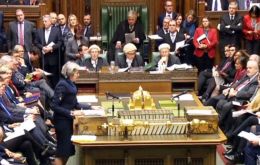
Members of Parliament have repeated their call for the government to publish its plan for Brexit in a formal policy document. A number of Conservative MPs have joined Labour in asking for a White Paper on the government's negotiating objectives, arguing it will allow for a fuller debate on Brexit.
-
Tuesday, January 24th 2017 - 18:46 UTC
UK Supreme Court scheduled to make landmark ruling on Brexit

The United Kingdom Supreme Court will rule whether Parliament or ministers have the power to begin the Brexit process. The landmark judgment, to be announced early Wednesday will decide how the EU's Article 50 exit clause is triggered.
-
Monday, January 23rd 2017 - 12:21 UTC
PM May scheduled to announce an ambitious port-Brexit industrial strategy

British Prime Minister is to unveil a new, more interventionist, and industrial strategy on Monday, designed to boost the post-Brexit UK economy. The government will be “stepping up to a new, active role,” Mrs. May said. She will launch the new strategy at her first regional cabinet meeting, to be held in the north-west of England.
-
Thursday, January 19th 2017 - 06:26 UTC
Lagarde anticipates “pain” as UK prepares departure from the European Union

The head of the International Monetary Fund has warned the UK there is still likely to be “pain” ahead as Theresa May prepares to trigger the UK's departure from the European Union. Christine Lagarde told the BBC the Brexit process would be complicated.
